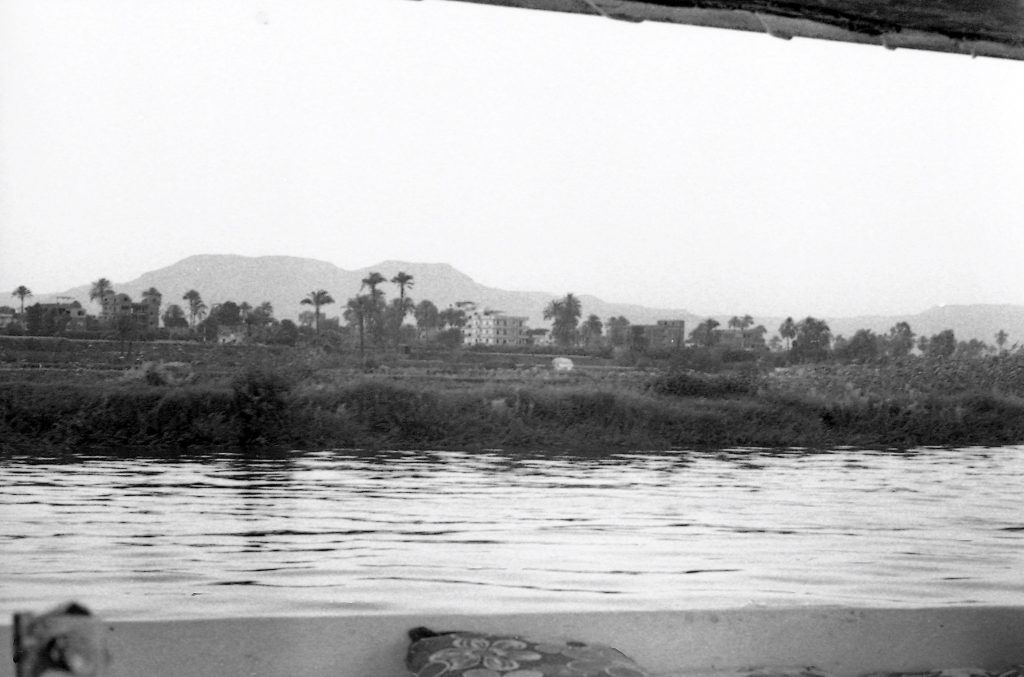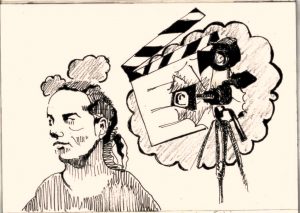
نظام الجمعيات في مصر: ما الذي يمكن أن يتعلمه المستثمرون من المجتمع
«صوّري انك محتاجة تشتري لابتوب بـ ٨٠٠ جنيه (ج) بس مش معاكي فلوس تكفيه في الوقت ده، طب انتي ممكن تجمعي ناس صوحابك، خلينا نقول ٧ افراد غيرك انتي، و هتلمّي ١٠٠ج من كل واحد. كده هيبقى عندك ال ٨٠٠ج تشتري اللابتوب بيها. ال ٨ شهور الي جايين بقى، انتي ملتزمة تدفعي ١٠٠ج للآخرين، و كل واحد في الجمعية هتقبض المبلغ الكامل بصورة دورية»
هذا شرح ندى، اندما سألتُها عن نظام الجمعيات الي موجودة في مصر. الجمعيات نظام اجتمعي للتحوش جمعيات ليست لتجربة جديدة على مصر، و شارك الكثير من الناس في الجمعات من قبل؛ إما إلى تحويش او إلى حل لتجاوز الأزمات المالية.
تحدثتُ إلى خمسة أشخاص عن تجاربهم مع الجمعيات في مصر. كشف اجاباتهم بعض المشاكل الاقتصادية التي تقلق الشباب في مصربينما فكرون عن مستقبلهم، خصوصً بنسبل الفلوس و الاستلاف لخططهم المقبلية. هذهالمشاكل تستحق الاهتماما لان الحكومة وشركات استثمار يستعدون حالياً لتذداد تمويل الصغر لأكثر من كونه لعامة الشعب. نظرة على كيف الشباب يستخدمونَ الجمعيات عدتًا يمكن ترينا كيف المستثمرين ينبغي تعدل القرود و الحسبات التي سيعرضونَها لمصر بطريقة تكفل فعلا ان النس التي تكفحنَ مع التخطيط المالي كل عادة.
مثل اللاب توب مناسب و مهم لندى؛ إذ تطمح أن تحلم تصبح مخرجة. دخلت جمعية من أجل التحوش واخيرًا استطعت تشتري ماكبوك
لإلنتاج الأفلامها. طارق، صاحب مطعم في القاهرة، لدى سبب مماثل، عندما دخل جمعية. «كنت عايز اجب موبيل قبل ما يغلى» فال لي. طارق و ندى وجها نفس التحدي لان معظم الأدوات التقنية في مصر مستوردة، و الضرائب و تقلبات أسعر الصرف يتأثر السعر.
«و مافكرتش تشتري الحاجة بالقسط؟» سألتُهم،«بدل ما تدخل جمعية»
لطارق، كانت المشكلة ان سعر الموبيل كان هيغلى بعد شهر؛ مشكلة شائعة لسوق متقلبة. ل ندى كانت ان القسط بتيجي بالفوائد، و التزام لحد مش معروف. في الجمعية انتي ملتزمة لي قريبك، زميلك او صوحابك، ف فيه جانب اجتميعي و في تشجيع من بقة الناس. دي كانت حاجة مفيدة لندى، و هذا الشيء سبب انها اخترت تدخل جمعية بدل ما تحوش في حسابها الخصة، حتى لو البنك كان هيديلها فوائد. «انا ضعيفة» قالت لي، شرح انها ماكانتش قدرة تحكم على ايدها «هاصرفها كلها على الأكل»
على رغم أن اثنين من الاشخاص التي اتحثدت معها قالت لي أن أحتمل انهم يدخلان جمعيات أقلَ بعد ما فتحوا حسباتهم في البنك، طارق قالَ لي أن الجمعيات مهمة لانهم غير القرود الرسمة البنوك . يذكر طارق العام الماضي، عندما طلب للحصول القرد، أن البنك قال له انه هيديله دراسة عشان يساعده في المشروع. طارق إن كان متحمس يستفيد من هذا الشيء لأن نصيحة محترفة لتنفيذ المشروع مالي على كان يتوفر فرصة و تشجيع حلوة – زي التشجيع إلى ندى لقيتها في الشركة في الجمعية. وزارة التضامن الاجتماعى المصرية تقول انها هتعرضها دراسة متشبهة الدراسة إلى طارق كان يتمنى يستلمها، بس في تجربة طارق من سنة ده ماحصلش. مع انه كان يريد ينفذ مشروع بتشجيع و دراسة البنك هم طلبوا خبرة قبل ما يتفق للقرد، كأ ضمان لنجاح الاستثمار.و يضًا يطلبون ضمانات ملموسة، قال لي، «عربية، او شقة، او ادوات مصنع، و لازم يكون معاكي رخصة بردو.»
في بلد الي فيه نسبة نسبة كبيرة السكان الذين يعيشون تحت خط الفقر، و بينما نسبة كبيرة من الأنشطة الاقتصادية يتم بشكل غير رسمي، الشروط دي صعبة. « في ناس كتير دخلت لدعم المشاريع الصغيره ده، بس الناس اللي الريدي عندها مشاريع، مش الناس اللي معندهاش خالص.» شرح ان لحد دلوقتي التمويل الأصغر مغيروش الاقتصاد المصري كتير.
الشروط الصعبة دي غير الفكرة الاصلية بتاعة التمويل الأصغر. مصرف غرامين هو واحد من المؤسسات الرسمية المعروفة المنشأة لتقديم الائتمان البالغ الصغر. البنك الغرامين كان شغال في بنغلاديش في السبعينات، و ماكانش بيطلب ضمانات، و كان بيسعد ناس في الأرياف، الي غلبًا ماكانوش قادرين يستخدموا البنوك التقليدي.
الحسن، محاسبا مصري ساكن في الدبي قال لي ان نسبة الناس الي بتدخل الجمعيات بتقلل في مصر دلوقتي، بس ان هذا النظام لسه مفيدة للناس في الأرياف المصرية، التي اكثر منهم معندهمش حسبات في البنوك. فالاستثمرين اللي عاوزين يعرضو تمويل الصغر لموطنين المصريين المفروض يتأكدوا ان خدماتهم متاحة للناس اللي لحد دلوقتي ماكنتش قدرة تشترك في الاقتصاد الرسمي، من غير ضمانات كبيرة و مع دعم الدراسة و التدريب. ها كذا التمويل الصغرفعلا ممكن توسيع نطاق الاقتصد بشكل جديد في مصر، و تذداد حقوق الاقتصادية للناس الي محتاجاها.

Neda dreams of becoming a director, and needs help with funding to get started
ENGLISH:
Money pooling in Egypt: What can investors learn from society?
During my interview for the John Speak scholarship I was asked, what do you think is the biggest problem facing Egypt’s economy?
After living here for nearly two years, one of the greatest concerns for me is the vast divide between the measures of the government and international financial institutions like the World Bank and the IMF. While large scale reforms have registered some improvements in the financial indicators by which Egypt’s economy is measured, the majority of Egyptians are suffering from dramatic inflation that is not matched by wage increases, while many remain unable to access the official economy and the benefits of its growth.
For this reason, I decided to write my first report for John Speak on a financial aspect of society which exists, and has existed outside financial institutions in Egypt, and which provides help to many for needs that vary from putting down a mortgage and paying school fees, to buying a dress, car, or simply saving.
“Imagine that you need to buy a laptop for 800 Egyptian pounds (LE), but you can’t afford that right now. You can pool together some friends, let’s say seven people aside from yourself, and you collect LE100 from each person. That way you have your LE800 to buy your laptop. After that, you’re committed to paying LE100 to the others for the coming eight months, and each person in the pool will receive the full LE800 by turns.”
This was Neda’s explanation, when I asked her about the money pooling system in Egypt. The social scheme of pooling money pooling isn’t a new phenomenon; many people in the country have joined pools before now in order to save, or as a solution for financial emergencies.
I spoke to five people about their experiences with pooling. Their answers revealed some of the concerns that preoccupy young people in Egypt when they’re thinking about money and the future. As the government looks to extend microfinancing services to more of the population, the way that people use pooling systems can show investors how to adjust the loans and accounts they’re planning to offer in a way that will be genuinely useful to people who would otherwise struggle to participate in the economy.
The example of a laptop is particularly important for Neda, who has ambitions of becoming a director, and who joined a pool with her colleagues at work in order to save for an Apple Mac to help her edit her films herself. Tarek, who owns a restaurant in Cairo, had a similar reason for joining a pool. “I needed to get a phone before it got more expensive,” he told me. Tarek and Neda faced similar challenges, since most technological equipment in Egypt is imported, meaning the prices are increased by taxes and and a volatile exchange rate.
“Why didn’t you buy it in installments,” I asked them, “instead of joining a pool?”
For Tarek, the problem was that the price would soon increase – something that commonly affects imported items in a vulnerable market. And for Neda, paying in installments would ultimately mean paying much more in interest to someone she doesn’t know. In a pool you commit yourself to people around you, your colleagues or your friends, and the social aspect of the saving scheme gives you some support. This was useful for Neda, and led her to choose joining a pool rather than saving in her own private account, despite the fact that she would have been able to receive interest on her savings in a bank. “I’d give in,” she told me, explaining that she wouldn’t be able to stop herself over-spending. “I’d spend it all on food!”
Although two of the people I talked to told me that they were less likely to join a pool now after opening and saving in private bank accounts, Tarek told me that pooling can be useful, as it frees the participants from the burdens that come with official loans. He remembers last year, when he applied for a loan himself. The bank told him that it would give him any advice or training he needed to help with his enterprise, which would have been a great source of support for him – like the support that Neda got from joining a pool with her colleagues. Egypt’s Social
Solidarity Ministry recently suggested that it would offer similar training, as part of ongoing plans to roll out new microfinance services.
In Tarek’s experience however, the promise of support fell through. Although he looked forward to the bank’s advice, they required previous entrepreneurial experience to ensure the success of his venture. They also needed tangible collateral, he told me, “a car, or a flat, or industrial equipment — and you need to be licensed.” This meant Tarek was ultimately unable to secure the loan.
In a country like Egypt, where many people live below the poverty line, and where a large proportion of economic activity takes place unofficially, such conditions make it difficult for most people to secure financial services in order to take part in entrepreneurial activities.
“Lots of people have applied for financial support for small projects, but they were the people who had already opened enterprises before that,” said Tarek, explaining that thus far, microfinancing has done little to reshape the economy.
The first experiments with microfinancing, carried out by the Grameen Bank were careful not to demand collateral, helping thousands in the Bangladeshi countryside who were previously unable to access to financial services.
Alhassan, an Egyptian accountant currently living in Dubai, told me that fewer people in Egypt join money pools these days, but that it’s still a very useful system for people in the Egyptian countryside, fewer of whom have bank accounts, or access to financial services. If investors looking to offer microfinancing services in Egypt tailor their services, they could ensure that individuals who have previously been unable to participate in the official economy have access to loans and training. In this way microfinancing could really extend the reach of the economy in a new way, to increase economic rights for those who need them in Egypt.
